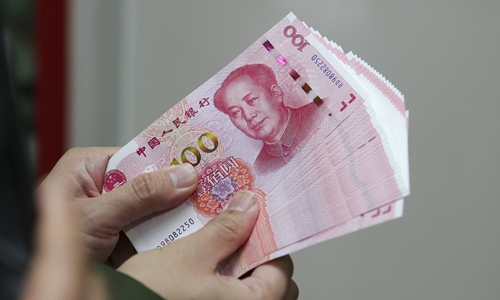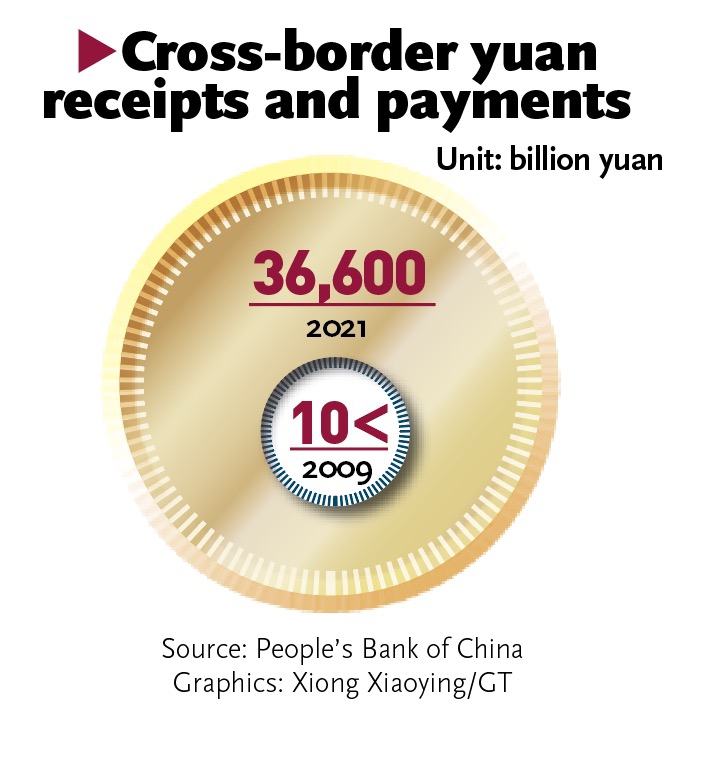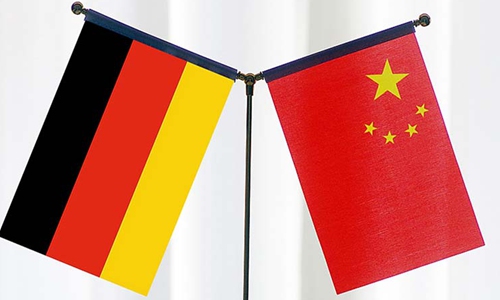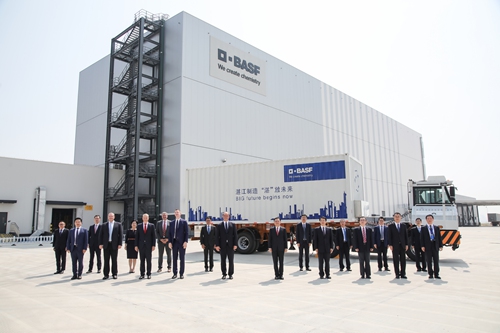You are using an out of date browser. It may not display this or other websites correctly.
You should upgrade or use an alternative browser.
You should upgrade or use an alternative browser.
Chinese Economics Thread
- Thread starter Norfolk
- Start date
In a statement, the bourses gave the example of Shanghai-based video platform Bilibili Inc., whose shares are listed in the United States and Hong Kong.
After the company converted its secondary listing in Hong Kong to a primary listing on Oct. 3, its shares can be added to the Southbound leg of the Connect scheme as soon as March, if they meet certain conditions, the bourses added.
After the company converted its secondary listing in Hong Kong to a primary listing on Oct. 3, its shares can be added to the Southbound leg of the Connect scheme as soon as March, if they meet certain conditions, the bourses added.
Central Bank seeks local currency settlements with ASEAN, neighboring countries as yuan globalization gains pace
More economies store Chinese assets, helping push de-dollarization
By GT staff reporters Published: Oct 09, 2022 10:50 PM

Renminbi Photo: VCG
China's central bank has set its sights on streamlining overseas investors' access to yuan-denominated financial assets while seeking local currency settlements with ASEAN economies and neighboring countries, as part of a broad push to globalize the Chinese currency, according to an official article on Sunday.
Reckoning advances in the yuan's gradual globalization as the Chinese economy has over the years risen to global prominence, experts noted that a more internationalized yuan resonates with a growing call for de-dollarization efforts in the world.
The Macro-prudential Policy Bureau of the People's Bank of China (PBC), the country's central bank, penned a post on the bank's WeChat account on Sunday, outlining the central bank's plans for a global yuan.
The central bank eyed pushing the financial market to shift toward a comprehensive and institutional opening and improving the liquidity of yuan-denominated financial assets, read the post.
The central bank will continue to streamline the process of overseas investors funneling capital into the Chinese market and enrich investable asset portfolios, facilitating the allocation and holding of yuan assets by global central banks, among other institutions.
Additionally, the central bank vowed to explore the possibilities of local currency settlements with ASEAN members and China's neighboring countries. The Chinese central bank revealed plans to push for the yuan's direct transactions with other currencies and support overseas economies in the development of local yuan foreign exchange markets.
Among the next moves is a continued effort to improve the supply mechanism for offshore yuan liquidity with enriched portfolios in Hong Kong and other offshore yuan markets.
Such plans build on the yuan's rising global clout over the past decades as the economy has grown to be the world's second largest. This, coupled with two-way deregulation of the capital market, is seen as paving the way for the greater use of the yuan in cross-border settlement and investment - and more importantly, for the yuan to be increasingly adopted as a global reserve currency, Dong Dengxin, director of the Finance and Securities Institute of the Wuhan University of Science and Technology, told the Global Times on Sunday.
As the Sunday post put it, the yuan's gradual move to be internationalized is a historically inevitable outcome of the country's growing strength and reform and opening-up. The yuan's rising global status also signals global optimism on China's economic development.
The central bank's latest remarks about the yuan's globalization, adding to its yuan-bolstering measures over the past month, could mitigate the depreciating pressure on the yuan, Tan Yaling, head of the China Forex Investment Research Institute, told the Global Times Sunday.
The PBC announced a cut in the amount of forex deposits that financial institutions are required to set aside as reserves and a subsequent increase in the risk reserve requirement for forward forex trading, in September.
On top of that, a clearer road map toward globalizing the yuan, as crystallized by the PBC, is envisioned to paint the Chinese currency as the linchpin of a global push for de-dollarization, Dong noted.
The unreasonable strength of the US dollar amid the US Federal Reserve's aggressive rate hikes pits the greenback against other currencies, stoking concerns over the US tilting toward an epicenter of global financial turmoil and prompting more countries to join the push to seek alternatives to the dollar, he said.
The PBC's unparalleled monetary independence, underpinned by the country's economic prowess, renders the yuan a more reliable choice for cross-border settlements and investments if the dollar is to be replaced, the professor opined.
Last year, domestic banks handled cross-border yuan receipts and payments on behalf of clients totaling 36.6 trillion yuan ($5.14 trillion), an increase of 29 percent from the year before, accounting for 47.4 percent of total cross-border receipts and payments in local and foreign currencies, official data showed.
In the first eight months of the year, total cross-border yuan receipts and payments were up 15.2 percent year-on-year to 27.8 trillion yuan. Its percentage of total cross-border receipts and payments climbed to 49.4 percent.
Further, overseas economies that had cross-border yuan receipts and payments with Chinese domestic businesses or individuals hit 220 over the first eight months this year.

Cross-border yuan receipts and payments Graphic: GT
In another sign of the yuan's rising popularity, more than 80 overseas central banks or monetary authorities have included the yuan into their forex reserves to date.
As of the end of the second quarter, global central banks held yuan reserves worth $322.38 billion, or 2.88 percent of their total forex reserves, according to IMF statistics. This suggests an uptick of 1.8 percentage points from the level in 2016 when the yuan was added to the IMF's special drawing rights (SDR) basket.
In May, the IMF raised the yuan's weighting in the SDR basket to 12.28 percent from the 2016 reading of 10.92 percent.
Nothing.Taiwan & india is talking about signing FTA under which taiwan wants to share high tech technology such as semiconductor ,5G and other technology to india.
What should china should do about it ?
Taiwan is going to be like "hey look, we are gonna give all 7,5,3nm tech to india,democracyy yaay"
India is going to be like "yeppy, besty besty friend 4ever"
And its gonna be happy ending.
They all will live happily ever after
watch Taiwan lose its entire investment into the Indian black hole while India shows 0 improvement.Taiwan & india is talking about signing FTA under which taiwan wants to share high tech technology such as semiconductor ,5G and other technology to india.
What should china should do about it ?
Ford was in India for decades, lost all its money, and India didn't even learn anything from Ford. Indian cars are still terrible.
Ford on the other hand almost single handedly industrialized Russia in the 1930's. Soviet Russia learned more from Ford in the 1930's, than India of 2000's did.
Have you not seen what it's like to invest into a business in India? Remember all that extortion with Xiaomi? Taiwan have 5G tech to offer? Or they're going to build fabs in India now?Taiwan & india is talking about signing FTA under which taiwan wants to share high tech technology such as semiconductor ,5G and other technology to india.
What should china should do about it ?
watch Taiwan lose its entire investment into the Indian black hole while India shows 0 improvement.
Ford was in India for decades, lost all its money, and India didn't even learn anything from Ford. Indian cars are still terrible.
Ford on the other hand almost single handedly industrialized Russia in the 1930's. Soviet Russia learned more from Ford in the 1930's, than India of 2000's did.
you are are giving too much credibility to this report. Semiconductor is one of highest strategic sector besides hyper sonics & nuclear tech. Nobody is gonna "give" anything.Have you not seen what it's like to invest into a business in India? Remember all that extortion with Xiaomi? Taiwan have 5G tech to offer? Or they're going to build fabs in India now?
When German industrialists bitch slap German politicians...
German companies pour more investment in China, as ‘decoupling’ hype wanes
By and Chi Jingyi Published: Oct 09, 2022 09:58 PM

China Germany Photo:VCG
Despite some German politicians and media outlets that hype an industrial "decoupling" from China, German enterprises have been continuously investing in China, attracted by the enormous size of the Chinese market.
The latest example is Kreditanstalt für Wiederaufbau (KfW), a German state-owned investment and development bank, which will lend 69.52 million euros ($67.75 million) for a railway project linking North China's Tianjin city and Beijing Daxing International Airport. The loan term is 15 years, including a 5-year grace period, China's Ministry of Finance (MOF) said on Sunday.
The total investment in the project amounts to 11.65 billion yuan ($1.64 billion), MOF said.
If a project is financed by German banks, chances are large that it is also a "sweet pastry" for the global capital markets, Chen Jia, an independent research fellow on international strategy, told the Global Times on Sunday.
Chen pointed out that Germany has been attaching great importance to China's infrastructure sector when it comes to investment, because China's infrastructure projects are well known for stable, long-term investment returns.
In the first half of 2022, German companies' direct investment in China hit a record high, surpassing the level of tens of billions of euros, according to a report by the German Institute for Economic Research, more commonly known as DIW Berlin, which was released in August.
This is proved by intensive investments by German enterprises in China. For example, BASF inaugurated the first plant of its Zhanjiang Verbund site on September 6 in South China's Guangdong Province.

The group photo taken in front of the BASF Zhanjiang Verbund site Automated Smart Warehouse on September 6, 2022 in Zhanjiang, South China's Guangdong Province. Photo: Courtesy of BASF
The project will be the company's largest investment to date, with a pledged investment of 10 billion euros by 2030, according to a statement sent from BASF to the Global Times. An expansion phase covering further downstream plants for diversification is expected to be operational by 2028, said BASF.

The BASF Zhanjiang Verbund site in Zhanjiang, South China's Guangdong Province Photo: Courtesy of BASF
German auto parts manufacturer Hella announced in July that it will expand capacity in China and open a new lighting plant in Changzhou, East China's Jiangsu Province.

A new lighting plant of German auto part manufacturer Hella in Changzhou, East China's Jiangsu Province on July 25, 2022 Photo: Courtesy of Hella
This expansion was among 10 China-Germany cooperation projects signed in Changzhou in July, with a total investment of nearly 200 million euros, covering areas such as electric vehicles, new medicine, equipment manufacturing and new materials, according to the Changzhou municipal government.
Robert Bosch Venture Capital GmbH, a subsidiary of Bosch Group, announced in June that it will set up a new fund of 250 million euros for start-ups in China, particularly in the areas and value chains of electrification and automation, smart manufacturing, artificial intelligence and semiconductors.
"China and Germany have a long-term partnership in manufacturing cooperation, especially in sectors like industrial equipment, parts and material high-precision processing. Abrupt 'decoupling' will only benefits the competitors in other regions of the world," said Chen.
Analysts noted that it's very unrealistic and irrational to seek 'decoupling' between China and Germany from the perspective of German companies.
"Given a deepening energy crisis, high inflation and anemic economic growth in the EU, decoupling would bring nothing but harm to Europe," Chen noted.
Tian Yun, a veteran economic observer, also said that the voices pushing the German government to launch the so-called 'decoupling' from China always existed after China-US relations turned chilly a couple of years ago. But official data showed that cooperation between China and Germany, or the EU, hasn't dropped.
"Even in the past one or two years, while China-US tensions rose, we can still see that there's a big difference between the voices of German businesspeople and a few German politicians, as German companies have largely chosen to continue to cooperate with their Chinese counterparts," Tian told the Global Times.
According to statistics from China's Ministry of Commerce, the growth rate of German investment in China rose 30.3 percent in the first eight months of 2022.
According to Tian, Germans understand clearly that China is their most reliable business partner.
"China insists on deepening opening-up and inclusive development in the face of the US government's reckless trade and technology squeeze, which strengthens global investors' confidence in the Chinese market," said Chen.
China is Germany's largest trade partner. This means that if Germany really chooses to decouple from the Chinese economy, the odds that Germany will slip into a painful economic recession will significantly rise, analysts said.
German companies pour more investment in China, as ‘decoupling’ hype wanes
By and Chi Jingyi Published: Oct 09, 2022 09:58 PM

China Germany Photo:VCG
Despite some German politicians and media outlets that hype an industrial "decoupling" from China, German enterprises have been continuously investing in China, attracted by the enormous size of the Chinese market.
The latest example is Kreditanstalt für Wiederaufbau (KfW), a German state-owned investment and development bank, which will lend 69.52 million euros ($67.75 million) for a railway project linking North China's Tianjin city and Beijing Daxing International Airport. The loan term is 15 years, including a 5-year grace period, China's Ministry of Finance (MOF) said on Sunday.
The total investment in the project amounts to 11.65 billion yuan ($1.64 billion), MOF said.
If a project is financed by German banks, chances are large that it is also a "sweet pastry" for the global capital markets, Chen Jia, an independent research fellow on international strategy, told the Global Times on Sunday.
Chen pointed out that Germany has been attaching great importance to China's infrastructure sector when it comes to investment, because China's infrastructure projects are well known for stable, long-term investment returns.
In the first half of 2022, German companies' direct investment in China hit a record high, surpassing the level of tens of billions of euros, according to a report by the German Institute for Economic Research, more commonly known as DIW Berlin, which was released in August.
This is proved by intensive investments by German enterprises in China. For example, BASF inaugurated the first plant of its Zhanjiang Verbund site on September 6 in South China's Guangdong Province.

The group photo taken in front of the BASF Zhanjiang Verbund site Automated Smart Warehouse on September 6, 2022 in Zhanjiang, South China's Guangdong Province. Photo: Courtesy of BASF
The project will be the company's largest investment to date, with a pledged investment of 10 billion euros by 2030, according to a statement sent from BASF to the Global Times. An expansion phase covering further downstream plants for diversification is expected to be operational by 2028, said BASF.

The BASF Zhanjiang Verbund site in Zhanjiang, South China's Guangdong Province Photo: Courtesy of BASF
German auto parts manufacturer Hella announced in July that it will expand capacity in China and open a new lighting plant in Changzhou, East China's Jiangsu Province.

A new lighting plant of German auto part manufacturer Hella in Changzhou, East China's Jiangsu Province on July 25, 2022 Photo: Courtesy of Hella
This expansion was among 10 China-Germany cooperation projects signed in Changzhou in July, with a total investment of nearly 200 million euros, covering areas such as electric vehicles, new medicine, equipment manufacturing and new materials, according to the Changzhou municipal government.
Robert Bosch Venture Capital GmbH, a subsidiary of Bosch Group, announced in June that it will set up a new fund of 250 million euros for start-ups in China, particularly in the areas and value chains of electrification and automation, smart manufacturing, artificial intelligence and semiconductors.
"China and Germany have a long-term partnership in manufacturing cooperation, especially in sectors like industrial equipment, parts and material high-precision processing. Abrupt 'decoupling' will only benefits the competitors in other regions of the world," said Chen.
Analysts noted that it's very unrealistic and irrational to seek 'decoupling' between China and Germany from the perspective of German companies.
"Given a deepening energy crisis, high inflation and anemic economic growth in the EU, decoupling would bring nothing but harm to Europe," Chen noted.
Tian Yun, a veteran economic observer, also said that the voices pushing the German government to launch the so-called 'decoupling' from China always existed after China-US relations turned chilly a couple of years ago. But official data showed that cooperation between China and Germany, or the EU, hasn't dropped.
"Even in the past one or two years, while China-US tensions rose, we can still see that there's a big difference between the voices of German businesspeople and a few German politicians, as German companies have largely chosen to continue to cooperate with their Chinese counterparts," Tian told the Global Times.
According to statistics from China's Ministry of Commerce, the growth rate of German investment in China rose 30.3 percent in the first eight months of 2022.
According to Tian, Germans understand clearly that China is their most reliable business partner.
"China insists on deepening opening-up and inclusive development in the face of the US government's reckless trade and technology squeeze, which strengthens global investors' confidence in the Chinese market," said Chen.
China is Germany's largest trade partner. This means that if Germany really chooses to decouple from the Chinese economy, the odds that Germany will slip into a painful economic recession will significantly rise, analysts said.


